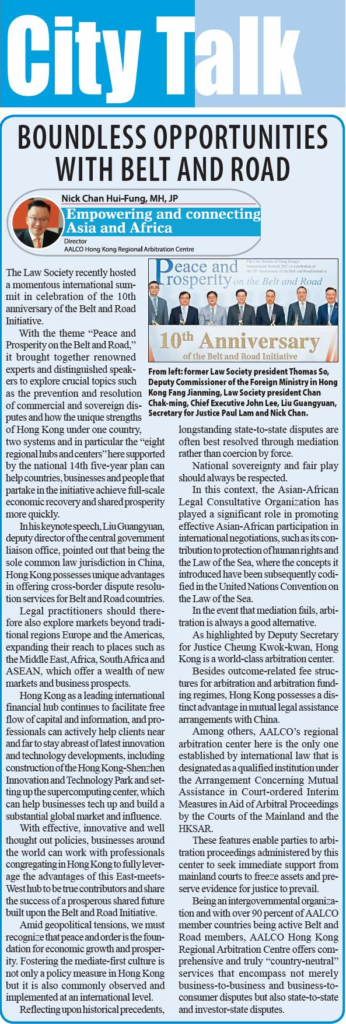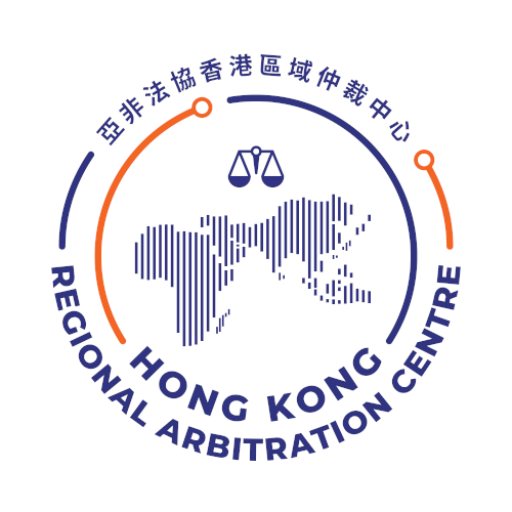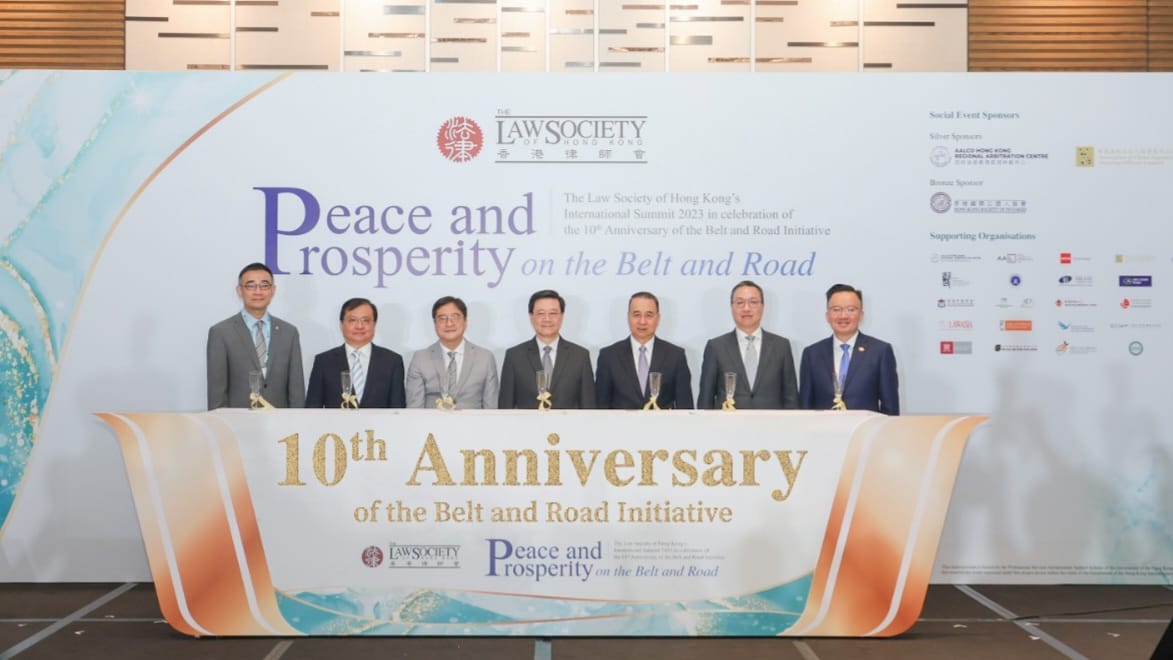- admin
- November 3, 2023
The Law Society of Hong Kong recently hosted a momentous international summit celebration of the 10th Anniversary of the Belt and Road Initiative.
During his keynote speech, Mr Liu Guangyuan, Deputy Director of the Liaison Office of the Central People’s Government in Hong Kong, pointed out that being the sole common law jurisdiction in China, Hong Kong possesses unique advantages in offering cross-border international dispute resolution services for Belt and Road countries. Legal practitioners should therefore also explore markets beyond the traditional regions of Europe and the Americas, expanding their reach to regions such as the Middle East, Africa, South Africa, and the ASEAN, which present vast untapped potential and offer a wealth of new markets and business prospects.
At the Summit, Mr. Cheung Kwok-kwan, Deputy Secretary for Justice, pointed out that Hong Kong is a world-class arbitration centre. Besides the outcome-related fee structures for arbitration and arbitration funding regimes, Hong Kong possesses a distinct advantage through the mutual legal assistance arrangements with the Mainland. As shared by Nick Chan, MH, JP, Director of AALCO Hong Kong Regional Arbitration Centre and the Chairman of International Summit 2023 Organising Committee, at the Summit, AALCO’s regional arbitration centre here is the only centre established by international law that is designated as a qualified institution for the Arrangement Concerning Mutual Assistance in Court-ordered Interim Measures in Aid of Arbitral Proceedings by the Courts of the Mainland and the HKSAR. These features enable parties to arbitration proceedings administered by this centre to seek immediate support from Mainland Chinese courts to freeze assets and preserve evidence for justice to prevail.
Being an inter-government organization and with over 90% of AALCO member countries that are the active members of the Belt and Road Initiative, AALCO Hong Kong Regional Arbitration Centre offers comprehensive and truly “country-neutral” arbitration services that encompass not merely business-to-business and business-to-consumer disputes but also state-to-state disputes, and investor-state disputes.
The Standard


